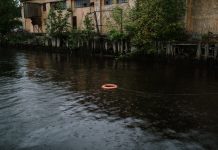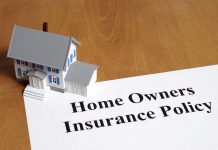Getting insured with home coverage that fits your needs is one of the hardest things to do in the insurance market today. If you’re employed, you don’t have to worry about other forms of insurance like health insurance since your employer vets “the one.”
But when you have to find insurance for your home, you have to do it on your own. As a beginner in the insurance world, things may get a little bit complicated.
What should you do when you’re in the market for home insurance coverage? This guide will advise you on how to find the perfect insurance plan to protect you and your home.

Coverage for Natural and Man-Made Hazards
The first thing that you should know about your home coverage is what it covers. Ensure that what you’re paying for is what you get. For example, your home coverage should cover both human-made and natural disasters.
Some people forget to check what they are actually covered for and only when they claim do they realize it. Natural disasters such as storms, floods, and quakes should be covered. Human-made disasters include theft, fire breakouts, and even terror (depending on your insurer).
Some General Exclusions
There are still some general exclusions that most coverage types exclude. Some examples are listed below.
• Acts of Terrorism – This coverage is something that most people want to be offered, but it often comes separately at a premium cost.
• Intentional Damages – You can’t just intentionally damage your property and expect your insurance to cover it. (In fact, in case of eventualities, some investigators find out if it was intentional.)
• Minor Damages – This includes cracks and the likes.
• Military Attack – Whether government-approved or not, insurance usually won't cover damages caused in these cases.
Choosing Your Assured Sum Wisely
When meeting with your insurer, don’t ever settle on the value of your property and possessions. Ensure that you get market value on each of them in case of any eventualities.
Most people tend to undercover because it brings down the amount of the premium, but that costs them greatly in the end. It is one mistake that most beginners make, but it is one that should be avoided at all costs.
Thoroughly Enquire
How far have you inquired about the coverage you are getting? Make it go as far as possible, and ask for recommendations from people who have taken the same coverage and benefited. Don’t just set your eyes on online reviews alone; make your inquiries to ensure that you’re safe.
Re-Read the Fine Print
As a beginner, always ensure that you read the fine print carefully, and after that, re-read it again. Some brokers can at times slip in some paperwork into your copy, so make sure you read to see if the terms are still as you initially agreed upon. Also, don’t just read it; ensure that your contract explains everything until you understand.
Conclusion
Getting an insurance policy on your home is the smartest way to ensure that you’re stable in case of damage to the said property. Getting coverage can save you some heartache and stress if you have to start over again on your own. But as a beginner, you have to consider all the angles here; don’t just dive in.




